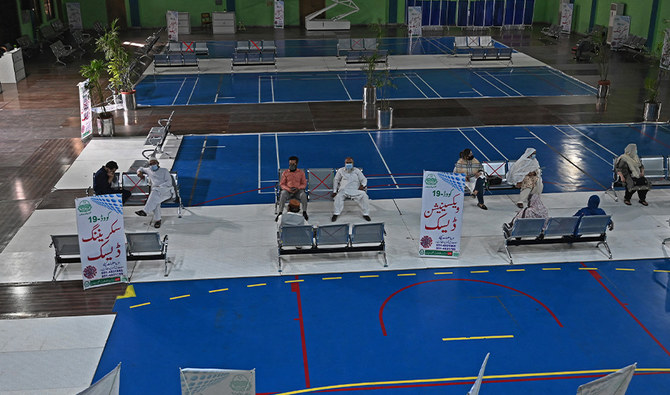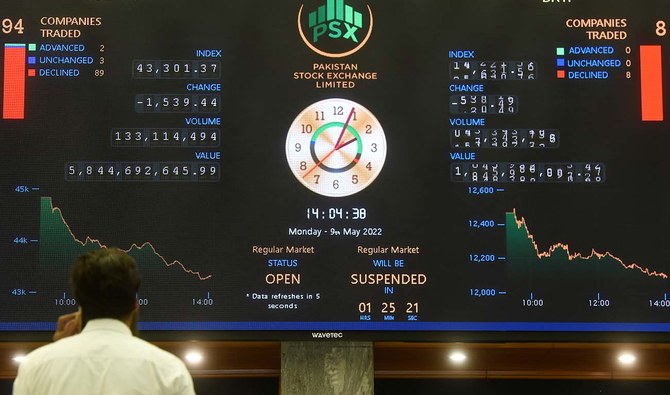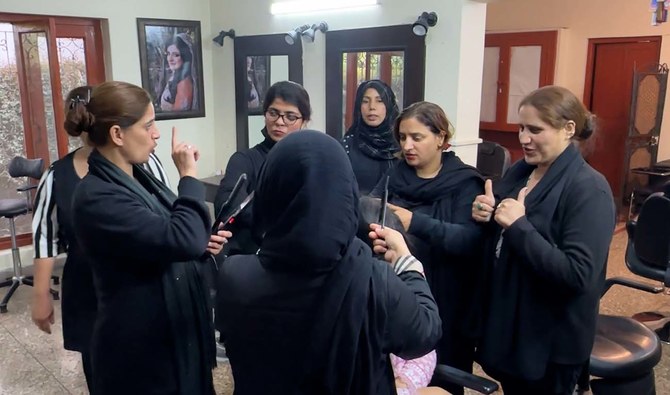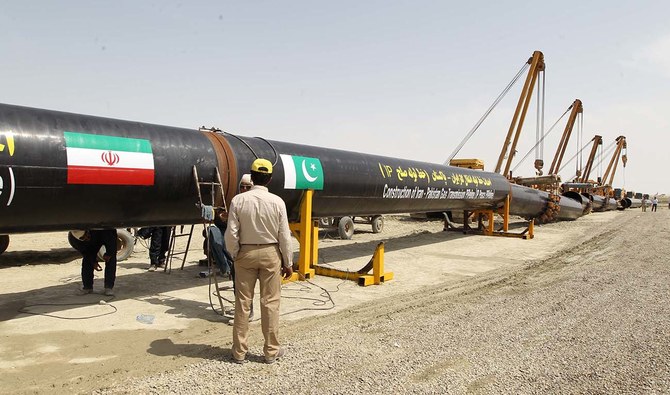ISLAMABAD: Pakistan’s private supply of COVID-19 vaccines has suffered a blow since 60,000 doses imported from Russia and China were used up earlier this month, with importers saying manufacturers were struggling to fulfill new orders from Pakistan due to rising global demand.
Two of Pakistan's private pharmaceutical companies, AGP Limited and AJM Pharma, had imported 50,000 doses of Russia’s Sputnik V and 10,000 doses of a single-dose Chinese vaccine, Convidecia, in March and April this year, with the jabs administered to 35,000 people at private hospitals and medical facilities in the cities of Karachi, Lahore and Islamabad.
“Our first shipment of 50,000 doses is fully utilized, but now we are facing supply issues for further imports from the manufacturer in Russia,” Muhammad Kamran Mirza, a non-executive director at AGP Limited, told Arab News.
He added that his company was trying to procure more vaccine doses from the manufacturers, but “we are not sure when we will get it.”
As the third wave of the COVID-19 pandemic sweeps through the South Asian nation of 220 million, the government has ramped up demand for vaccines imported by private players.
Sputnik V and Convidecia vaccines are among the vaccines currently authorised for emergency use in Pakistan, which allowed both AGP and AJM to administer them at the cost of Rs8,449 ($55.0) for two doses of Sputnik and Rs4,225 ($27.61) for a single dose of Convidecia, based on prices fixed by the federal cabinet.
Besides private imports, the government has also procured six million doses of SinoPharm and Convidecia vaccines from China, using them to inoculate more than 1.8 million people so far.
The government says it plans to vaccinate at least 70 million people by year-end, but critics argue the vaccine campaign is rolling out too slowly to meet that deadline.
In a Twitter post on Monday, Planning Minister Asad Umar, who heads the National Command and Operation Center (NCOC) – the federal body dealing with the pandemic – said that the government would begin vaccine registration for residents above 40 years of age from Tuesday, before confirming walk-in vaccinations for all registered citizens 50 years and older. Before this, health workers and people above the age of 50 were given priority in the vaccine drive.
Pakistan has conducted phase-III clinical trials of Convidecia with plans underway to manufacture the vaccine locally, with Chinese assistance.
“Our imported vaccine has been administered in the hospitals where the vaccine’s trials were conducted earlier this year,” Sultan Khan, marketing executive at AJM Pharma Limited, told Arab News. "The COVID-19 vaccine is in high demand in the global market, and we are trying to help the government as much as we can [to help fight the virus]."
















